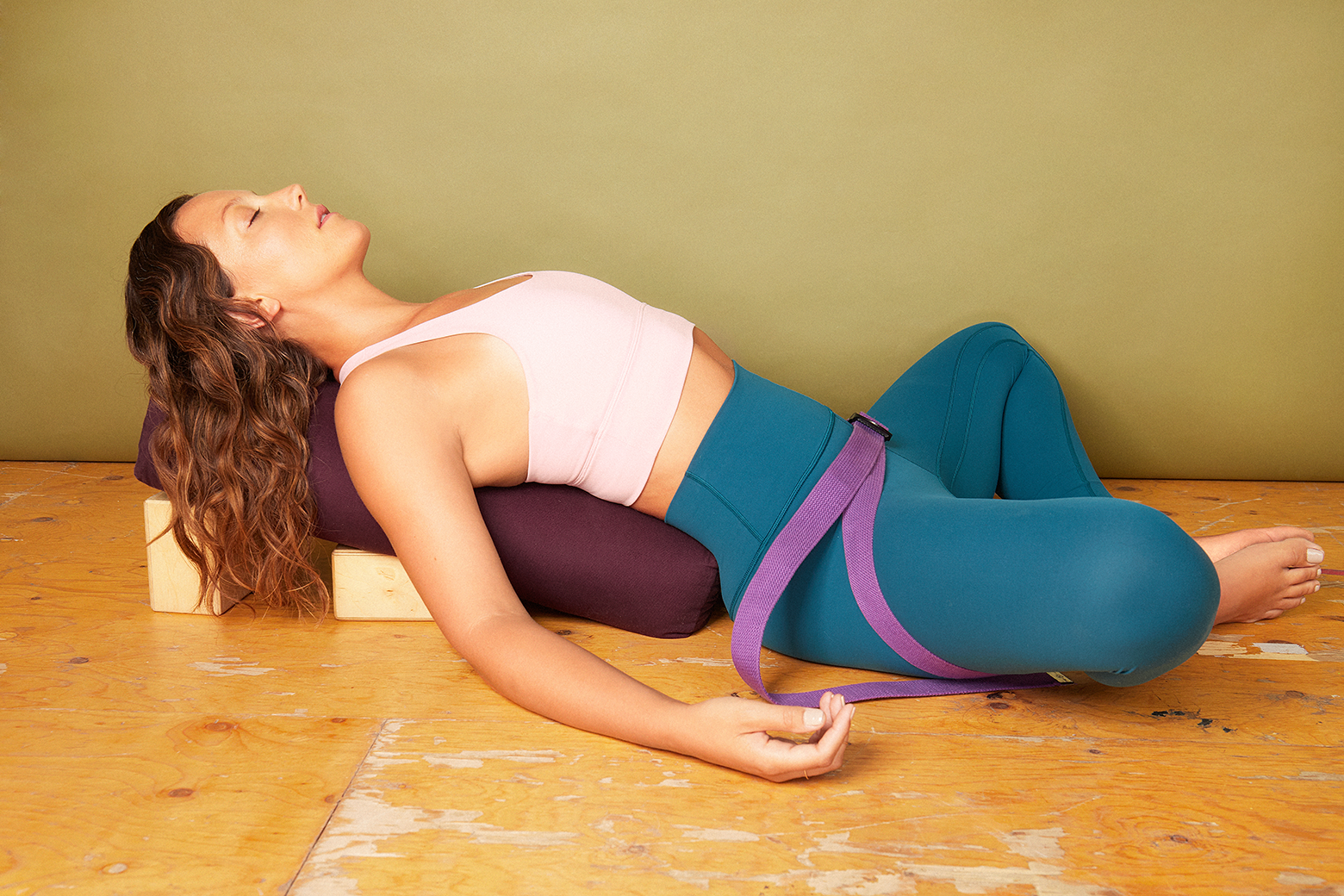
empower and evolve your practice
“Taryn is a masterful teacher. Whether practicing with her as my guide in an asana or nidra practice or taking part in a philosophy training I always find a sense of joy, feel seen and am held in a safe space to learn and grow.”
yoga reminds us of our capacity
Yoga practices (both the still and the moving ones) can leave us feeling capable and resourced. When we are resourced, we can extend the merits of our practice to the world outside of our mats.
Whether your practice is physical, meditative, spiritual or aspirational, there is a place for you here.
If you’re a teacher, emerge confident and excited to share what you’ve learned.
If you’re a forever student, gain perspective and an appreciation for what you’re doing and why.
“Taryn is literally the reason I have fallen back in love with yoga - these classes truly energize and restore me and I always get a giggle or two out along the way, which I love.”

Each practice is rooted in tradition, informed by modern insights, and delivered with care.
Whether you’re here to transform how you move, how you rest, or how you recover, there’s a path for you.
-

Yoga
Move with intention, awareness. and intelligence. Practices that leave you feeling empowered.
-

Nidra
Guided rest that reaches deep into your nervous system. Sleep better, breathe easier, feel centered and clear.
Meet taryn
Taryn is a yoga teacher, nervous-system guide and lifelong student of movement and stillness. Based in Tkaronto (Toronto, Canada), she blends asana, yoga nidra, philosophy and nervous-system science to craft practices that are deeply accessible and richly transformative.
Taryn leads local and international trainings on all things rest. Her library of yoga nidra recordings became a global app in April of 2025. She believes rest is key to how we function and thrive in this challenging world. Taryn is ever reliant upon practices that enable her to hold life’s complexities with abiding presence. And for her, those practices are yoga!
what students say
You have everything you need to be here.
Explore a practice that’s beginner-friendly, yet sneaky-strong.
Practice online or in person, when it works for you.
You are always evolving, and so should your practice.
FAQs
-
Taryn (she/her) will forever call herself a ‘new mom’, despite having a nine year old. Her entry to yoga was through movement, but her passion ruminates in studying its roots in Eastern philosophy. She is unabashed in her commitment to cheesy jokes and not taking this thing called ‘life’ too seriously. Taryn is most passionate about teaching movement that breeds self-inquiry and compassion. Her classes purposefully amp up the agency of her students because, ultimately, we all have the best teachers within us. If she had to pick one modality to be monogamous with, it would be Yoga Nidra. Through nidra, Taryn is able to express the golden nuggets embedded within the philosophy of yoga, while also facilitating some meaningful rest for her students.
-
Expect a class that builds safe progressions and invites curiosity and choice. Beginner students describe Taryn’s classes as empowering and supportive. Long-timers say that Taryn’s classes remind them of what yoga is meant to feel like. Taryn meets you where you’re at, whether you are here for a sweaty workout or effective rest.
-
Classes called ‘yoga’ will include a scale-able practice where the challenge is determined by you. We’ll cover the basics (like sun salutations and postures) and dive into the depth of the practice with breathwork. A yoga nidra practice involves little to no movement and deep rest. Consider yoga nidra to be a guided nap or the best savasana of your life.
-
Taryn offers weekly public classes at Mosaic Studio located in Toronto, Canada. She also offers private classes (online or in person.) Taryn travels Canada (and across oceans) to offer her renowned trainings in yoga nidra and restorative yoga.
-
Taryn embraces the full spectrum of yoga, offering both active, movement-based classes, and restful and still practices. Through her commitment to yoga philosophy, Taryn offers practices that honour the yoga tradition but are relevant for our modern lives.
Writings
I acknowledge.
I acknowledge that I live and build a livelihood on land that is the Ancestral Traditional Territories of the Ojibway, the Anishnabe, Chippewa, the Haudenosaunee, the Wendat peoples and the Mississaugas of the New Credit. This territory is covered by the Upper Canada Treaties.
I acknowledge that I teach practices borrowed from a culture that is not my own, and that this is a privilege. More specifically, I share and teach the written and aural traditions of yoga from India and Southeast Asian philosophy for which I have deep respect.
I acknowledge that the long history of yoga includes oppression at the hand of white colonizers in British India, and that oppression/exclusion of marginalized people in Western Yoga practice is an ongoing systemic issue and challenge.
I acknowledge that my whiteness confers many privileges including the freedom to teach and practice in public settings, to feel a sense of belonging in doing so, and to garner an income from teaching yoga.
In acknowledging the above, I also commit to wielding my privilege in a way that mitigates cultural appropriation and systemic harm to people of colour, the 2SLGBTQ+ community and those with different abilities. What does this look like? I teach from a place of inclusivity: my language is conscious; I make no assumptions about the abilities, identities or beliefs of the people before me; and, where possible, I offer cost adjustments and scholarships for those who need them.





